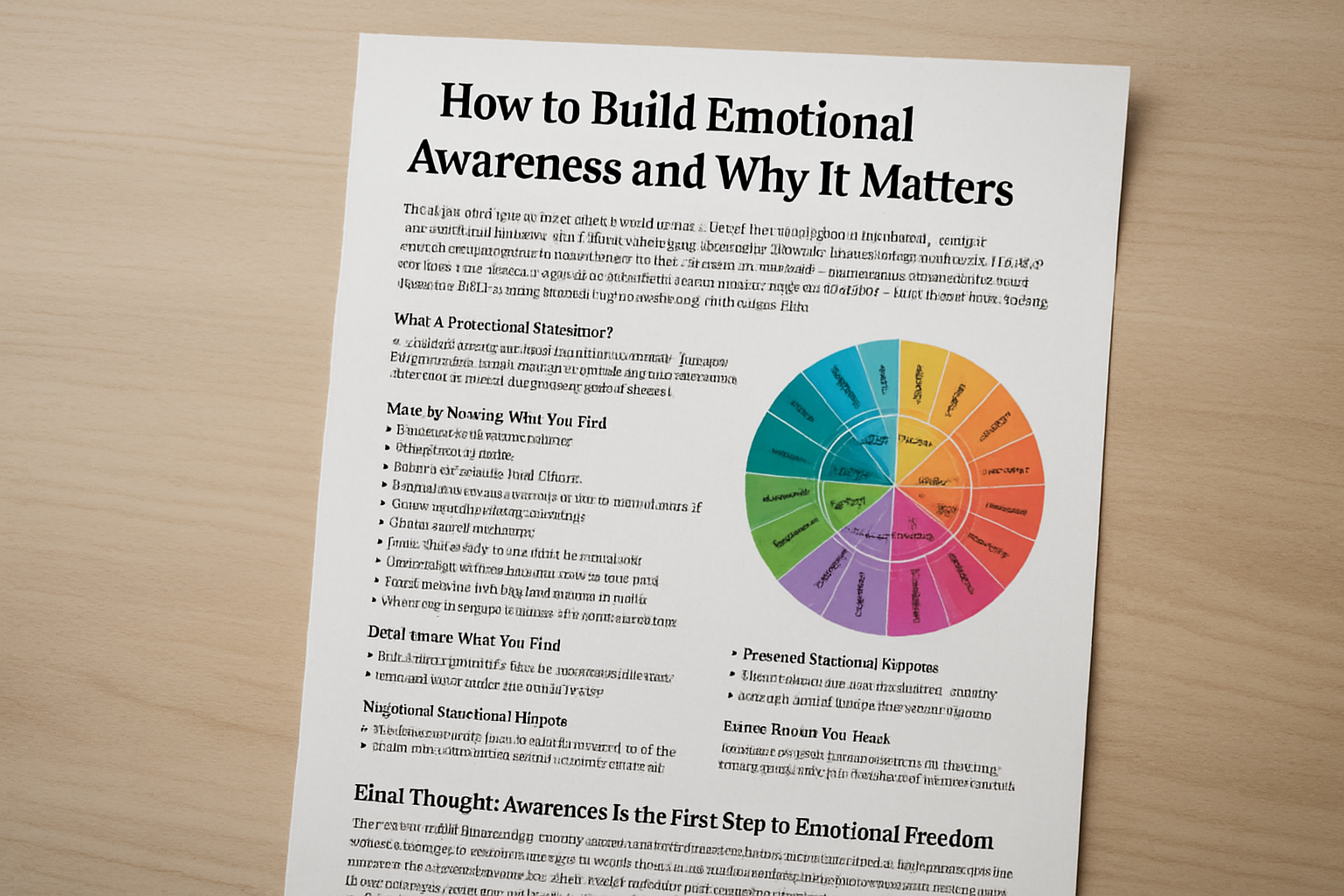Emotional awareness is the foundation of mental health, meaningful relationships, and self-understanding. It’s the ability to recognize what you’re feeling, name it, and understand why it’s there. Without emotional awareness, it’s easy to get caught in reactive behaviors, miscommunication, and inner confusion. But when you develop this skill, you create space between what you feel and how you respond — and that space is where clarity and choice live.
What Is Emotional Awareness?
Emotional awareness is the ability to notice and identify your emotions in real time. It means paying attention to the signals your body and mind give you — like a tight chest when you’re anxious, a lump in your throat when you’re sad, or the warmth of joy during a calm moment. It’s not about controlling your emotions, but understanding them so they don’t control you.
Why It Matters
Without emotional awareness, you may:
- React impulsively or defensively
- Suppress emotions that eventually erupt
- Feel overwhelmed by unclear emotional states
- Struggle to communicate your needs
- Make decisions based on fear or stress rather than clarity
Developing emotional awareness helps you regulate emotions, express yourself honestly, and connect more deeply with others.
Start by Naming What You Feel
When you feel something rising — pause. Ask yourself:
- “What am I feeling right now?”
- “Can I name this emotion?”
- “Where do I feel it in my body?”
Use simple language at first: angry, sad, happy, anxious, tired, overwhelmed. Over time, expand your vocabulary: frustration, disappointment, envy, contentment, hope. The more precise your labels, the more clearly you understand your inner world.
Listen to Your Body
Emotions are physical. Before your brain processes what’s happening, your body reacts. Pay attention to:
- Heart rate changes
- Muscle tension
- Shallow or deep breathing
- A “gut feeling”
Your body is often more honest than your thoughts. Tune in — it will guide you.
Journal Your Emotional Patterns
Writing helps uncover emotional patterns. At the end of the day, journal:
- What emotions did I feel today?
- When did I feel most reactive?
- What triggered my strongest emotion?
- How did I respond — and what would I like to try next time?
Over time, you’ll notice habits and triggers that offer deep insight.
Use the “Feelings Wheel”
The feelings wheel is a visual tool that helps you move beyond basic emotions. Start with a core feeling (like sad), and explore more specific shades (like lonely, disappointed, helpless). This builds emotional literacy and helps you understand what’s really going on beneath the surface.
Don’t Judge What You Feel
A common block to emotional awareness is labeling feelings as good or bad. In truth, emotions are neutral — they’re information. Sadness doesn’t mean you’re weak. Anger doesn’t make you wrong. Fear doesn’t mean you’ve failed. Allow your emotions to exist without shame, and they’ll pass more easily.
Share Your Emotions in Safe Spaces
Practice expressing your feelings with someone you trust. Instead of saying, “I’m fine,” try “I’m feeling off today, and I’m not sure why.” Honest emotional sharing creates deeper bonds and helps you feel seen. If you’re not ready to speak it, write it or voice it privately.
Recognize Emotional Triggers
Certain situations, people, or environments may activate intense emotions. Learn your triggers — not to avoid them, but to navigate them with awareness. Ask: “Why did that comment bother me so much?” or “What past experience is this reminding me of?” Triggers are invitations to heal and grow.
Pause Before You React
Emotional awareness creates space. When you feel triggered or upset, pause. Take a deep breath. Ask yourself: “What am I feeling, and what do I need right now?” That pause is powerful — it allows you to respond from wisdom, not reactivity.
Final Thought: Awareness Is the First Step to Emotional Freedom
You don’t need to suppress your emotions to be strong — you need to understand them. The more you pay attention to your emotional world, the more empowered you become. You begin to lead yourself with intention, honesty, and care. Emotional awareness is not just a skill — it’s a way of coming home to yourself.
